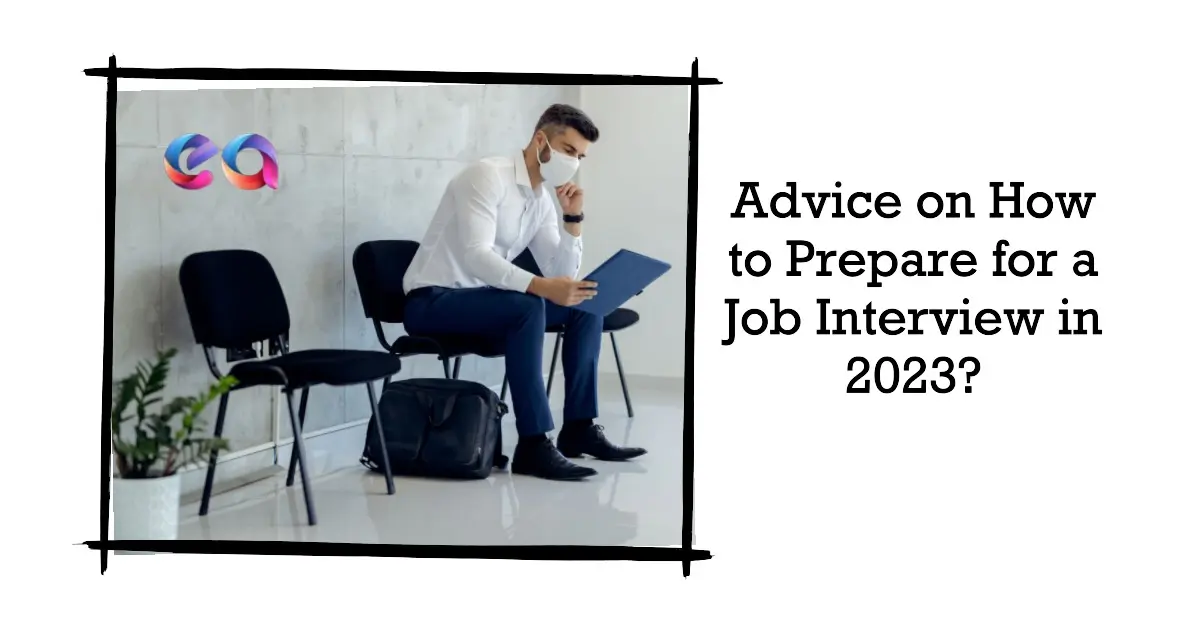
The job market in 2023 is more competitive than ever, and you need to stand out from the crowd if you want to land your dream job. Whether you are applying for a remote position, a hybrid role, or an in-person job, you need to prepare well for your interview and show your potential employer that you are the best candidate for the job.
We will share some tips on how to prepare for a job interview in 2023, covering topics such as:
- How to research the company and the role
- How to update your resume and portfolio
- How to dress and present yourself
- How to answer common and behavioral interview questions
- How to follow up after the interview
Let’s get started!
Table of Contents
How to research the company and the role
One of the most important steps in preparing for a job interview is to research the company and the role you are applying for. This will help you understand what the company does, what its values and goals are, what its culture and work environment are like, and what skills and qualifications they are looking for in their ideal candidate.
To research the company, you can use various sources such as:
- The company’s website: Look for information about their mission, vision, products, services, history, achievements, awards, social responsibility, etc.
- The company’s social media accounts: Follow them on platforms like LinkedIn, Twitter, Facebook, Instagram, YouTube, etc. and see what they post about their latest news, events, projects, customers, partners, etc.
- The company’s blog and newsletter: Read their articles and updates to learn more about their industry trends, insights, challenges, solutions, etc.
- The company’s reviews and ratings: Check sites like Glassdoor, Indeed, Trustpilot, etc. to see what current and former employees and customers say about their experience with the company.
- The company’s competitors: Compare and contrast them with other similar companies in their industry and see how they differ in terms of their strengths, weaknesses, opportunities, and threats.
To research the role, you can use sources such as:
- The job description: Read it carefully and highlight the key responsibilities, requirements, skills, qualifications, benefits, etc. that are relevant to the role.
- The hiring manager: If you know who will be interviewing you or who posted the job listing, look them up on LinkedIn or other platforms and see their background,
[Read: In-Demand Careers in 2023]
How to update your resume and portfolio
In 2023, it’s crucial to have an updated and polished resume and portfolio that highlights your relevant skills and accomplishments. Here’s what you can do to ensure your application materials stand out:
- Customize your resume: Tailor your resume to match the job requirements by emphasizing the skills, experiences, and achievements that align with the role. Remove any outdated or irrelevant information to keep it concise and focused.
- Showcase measurable results: Whenever possible, quantify your achievements with numbers or percentages to demonstrate the impact you made in previous roles. This can include metrics like revenue growth, cost savings, or project success rates.
- Highlight transferable skills: Identify transferable skills from your previous experiences that can be applied to the new role. Emphasize how these skills can contribute to the company’s objectives and showcase your adaptability.
- Update your portfolio: If you work in a field that requires a portfolio, ensure it reflects your best work and aligns with the company’s values and industry standards. Include projects that demonstrate your skills and problem-solving abilities.
How to dress and present yourself
The way you present yourself during a job interview can significantly impact the impression you make on the interviewer. Here are some tips to help you dress and present yourself professionally:
- Dress appropriately: Research the company’s dress code and aim to dress slightly more formal than what is expected. It’s better to be slightly overdressed than underdressed. Pay attention to grooming and ensure your attire is clean and well-fitted.
- Non-verbal communication: Maintain good posture, make eye contact, and offer a firm handshake (if applicable). Smile and use confident body language to convey your enthusiasm and interest in the role.
- Be mindful of your digital presence: In the age of remote interviews and online profiles, ensure your digital presence aligns with your professional image. Clean up your social media profiles and ensure they project a positive and professional persona.
How to answer common and behavioral interview questions
During the interview, you can expect to be asked a mix of common interview questions and behavioral questions that assess your past experiences and how you handle specific situations. Here are some tips to help you prepare:
- Practice your responses: Anticipate common interview questions such as “Tell me about yourself” or “Why are you interested in this role?” and prepare concise and compelling answers in advance. Practice with a friend or record yourself to improve your delivery.
- Use the STAR method: For behavioral questions that require you to provide specific examples, use the STAR method (Situation, Task, Action, Result) to structure your responses. This framework helps you provide a clear and structured answer that highlights your problem-solving and communication skills.
- Showcase your achievements: Whenever possible, use your responses to highlight your accomplishments and the positive impact you made in previous roles. This will demonstrate your value and potential contribution to the new company.
How to follow up after the interview
After the interview, it’s essential to follow up with a thank-you note or email to express your appreciation for the opportunity. Here’s what you can do:
- Send a personalized thank-you message: Within 24 hours of the interview, send a thank-you note to each interviewer. Reference specific points from the interview and reiterate your interest in the role and the company.
- Highlight additional qualifications: If you think of any qualifications or experiences that were not discussed during the interview, you can mention them briefly in your follow-up message to reinforce your suitability for the role.
- Maintain professionalism: Keep your follow-up concise, polite, and professional. Avoid sounding desperate or impatient. Use this opportunity to leave a positive impression and remind the interviewers of your candidacy.
In conclusion, preparing for a job interview in 2023 requires thorough research, customization of application materials, professional presentation, effective communication, and thoughtful follow-up. By investing time and effort into these areas, you can increase your chances of standing out from the competition and securing your dream job. Good luck with your interviews!”
Remember, job interviews can be nerve-wracking, but thorough preparation and a confident mindset can help you showcase your skills and qualifications effectively. Practice, be yourself, and approach the interview as an opportunity to demonstrate why you are the best candidate for the job.










